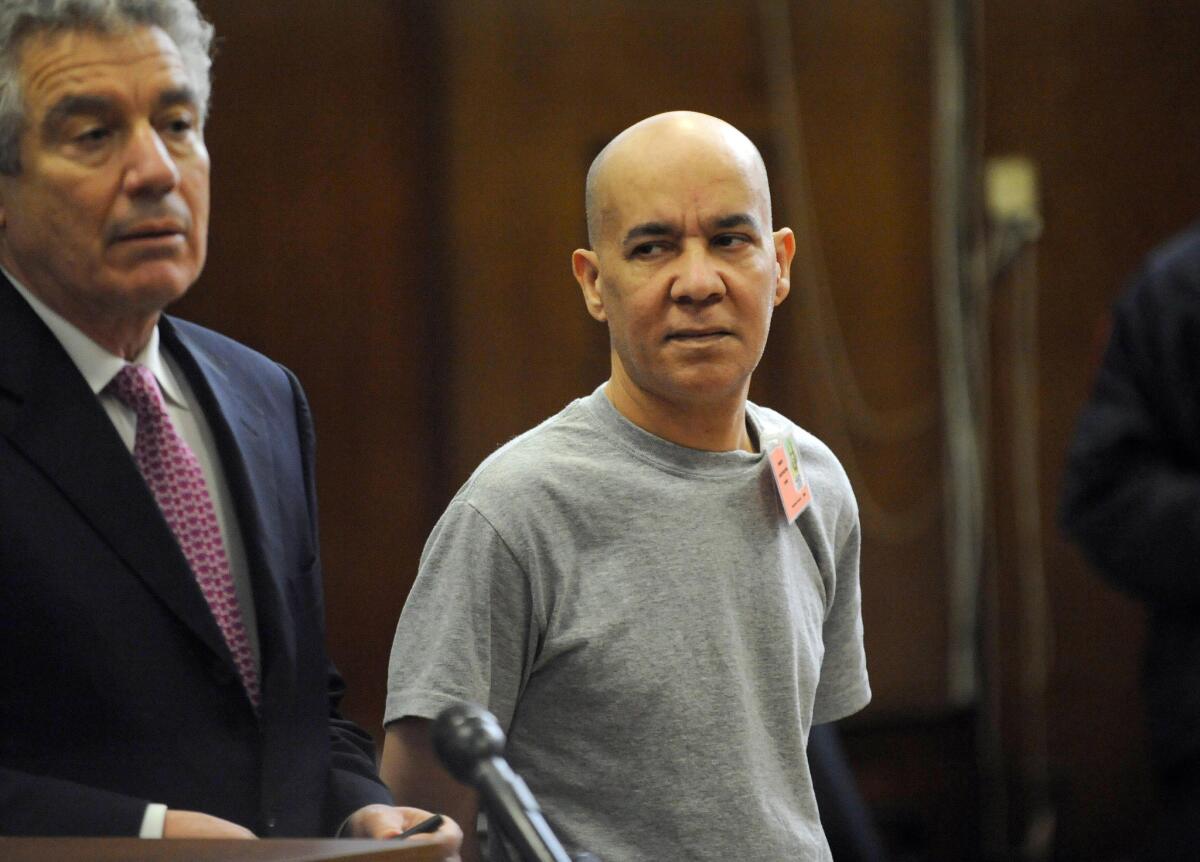Taped confessions of man charged in Etan Patz’s killing are admissible

The videotaped confessions of a New Jersey man charged with murdering Etan Patz, the 6-year-old who vanished in 1979 on his way to his school bus stop in Manhattan, can be used in court, a New York judge has ruled.
Pedro Hernandez, 53, confessed to strangling the boy in interviews with police over two days in May 2012, decades after the trail had gone cold in Etan’s disappearance.
Hernandez was a teenage clerk at a nearby bodega when Etan disappeared the morning of May 29, 1979. Etan’s parents, Stan and Julie Patz, had let their son walk to his bus stop alone for the first time that morning. He never made it to school, and his body was never recovered. He was the first missing child to ever appear on the side of a milk carton, part of a nationwide campaign to highlight the plight of missing and abducted children.
In the tapes, Hernandez told investigators about how he lured the child into the store with the promise of soda, and then led him to the bodega’s basement. There, Hernandez said, he choked the boy to death, wrapping his body in a plastic bag and dumping it in the trash.
Hernandez pleaded not guilty to kidnapping and murder charges in 2012.
In a decision issued Monday, New York County Supreme Court Justice Maxwell Wiley denied an attorney’s request to suppress the confessions. The defense had argued that Hernandez was arrested without probable cause, and that he was questioned for hours before being read his Miranda rights.
His attorney, Harvey Fishbein, has previously said his client has suffered from bipolar disorder, schizophrenia and hallucinations.
In his decision, Wiley wrote that the defense’s claim that New York police had no probable cause to arrest Hernandez was “utterly without merit,” noting statements to police from multiple people saying Hernandez had admitted to killing a child in New York, which “more than meet the burden of probable cause.”
Wiley also ruled that statements Hernandez made to police before he was read his Miranda rights were admissible, because Hernandez was told repeatedly that he was there voluntarily and understood he was not under arrest. Hernandez was later read his rights and waived them. Wiley ruled that those statements were also admissible, rejecting the defense’s claim that Hernandez’s low IQ made him incapable of “knowingly” waiving his rights.
The trial is scheduled to begin on Jan. 5.
For more breaking news, follow me @cmaiduc
More to Read
Start your day right
Sign up for Essential California for news, features and recommendations from the L.A. Times and beyond in your inbox six days a week.
You may occasionally receive promotional content from the Los Angeles Times.







